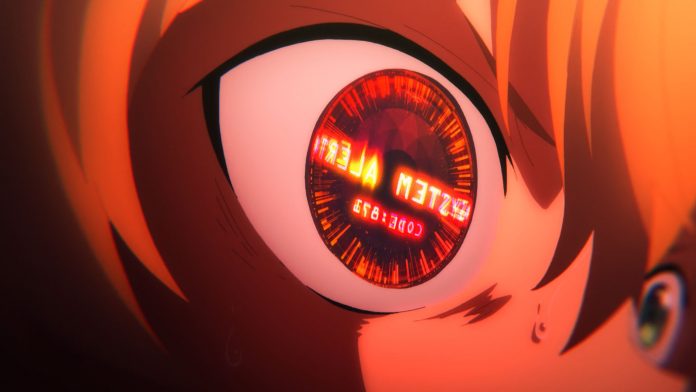Sword Art Online has been one of the biggest anime franchises to have come out in the 2010’s and was one of Toonami’s first big acquisitions in the modern era. Being praised for its engaging story, strong and relatable characters, cute romance between Kirito and Asuna, among other things, but panned for its harem aspects, hit or miss writing, among other factors, the show has been immensely praised by fans and at the same time generated plenty of sour grapes and vitriol from its critics. Project Alicization in particular has been considered to be one of series creator Reki Kawahara’s best works, receiving acclaim from extra world building and character development for Eugeo and Alice, and the struggles Kirito and Asuna face as they have to work hard to get out of this predicament makes for a compelling story arc. However, Alicization isn’t perfect, and that was on full display last weekend on Toonami.
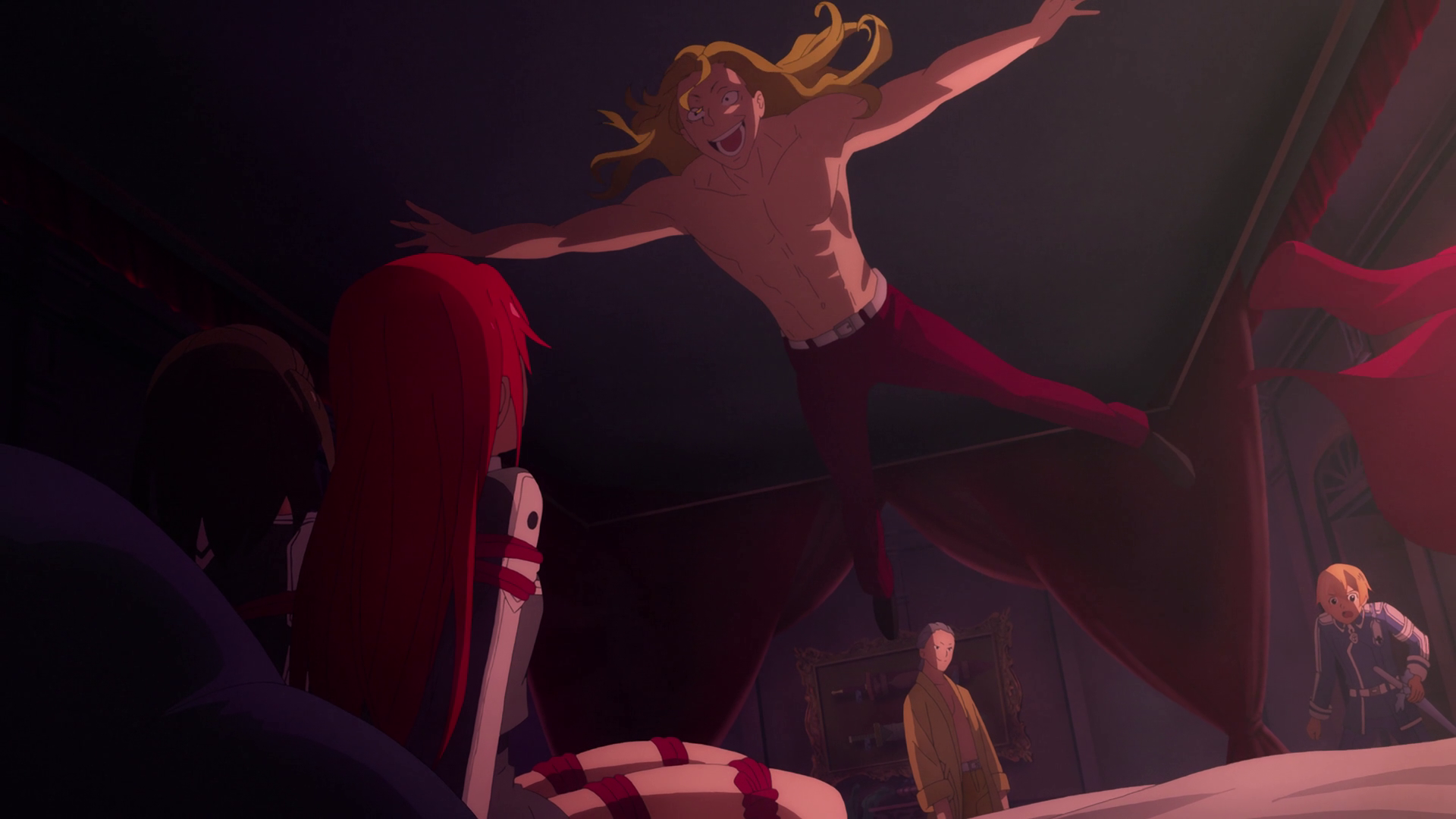
Whether it’s legitimate or toxic, criticism isn’t new to this series, and these three criticisms have been among the most evident among fans and critics throughout the show’s run. Those being his over-usage of attempted rape and sexual assault tropes and scenes, Asuna being reduced to a “damsel in distress waifu figure” since the Fairy Dance arc, and Kirito’s reputation of being a harem king as successive arcs has consisted of him teaming up with a girl who falls in love with him, only for her to find out that he’s already taken by Asuna and gets largely sidelined in successive arcs.
The first in particular would reach the forefront during Episode 10 of Alicization: Taboo Index, as Humbert and Rios used a legal loophole to rape Ronye and Tiese as their “punishment.” Of course, Eugeo and Kirito were not going to let that happen to their disciples, and did what they had to do.
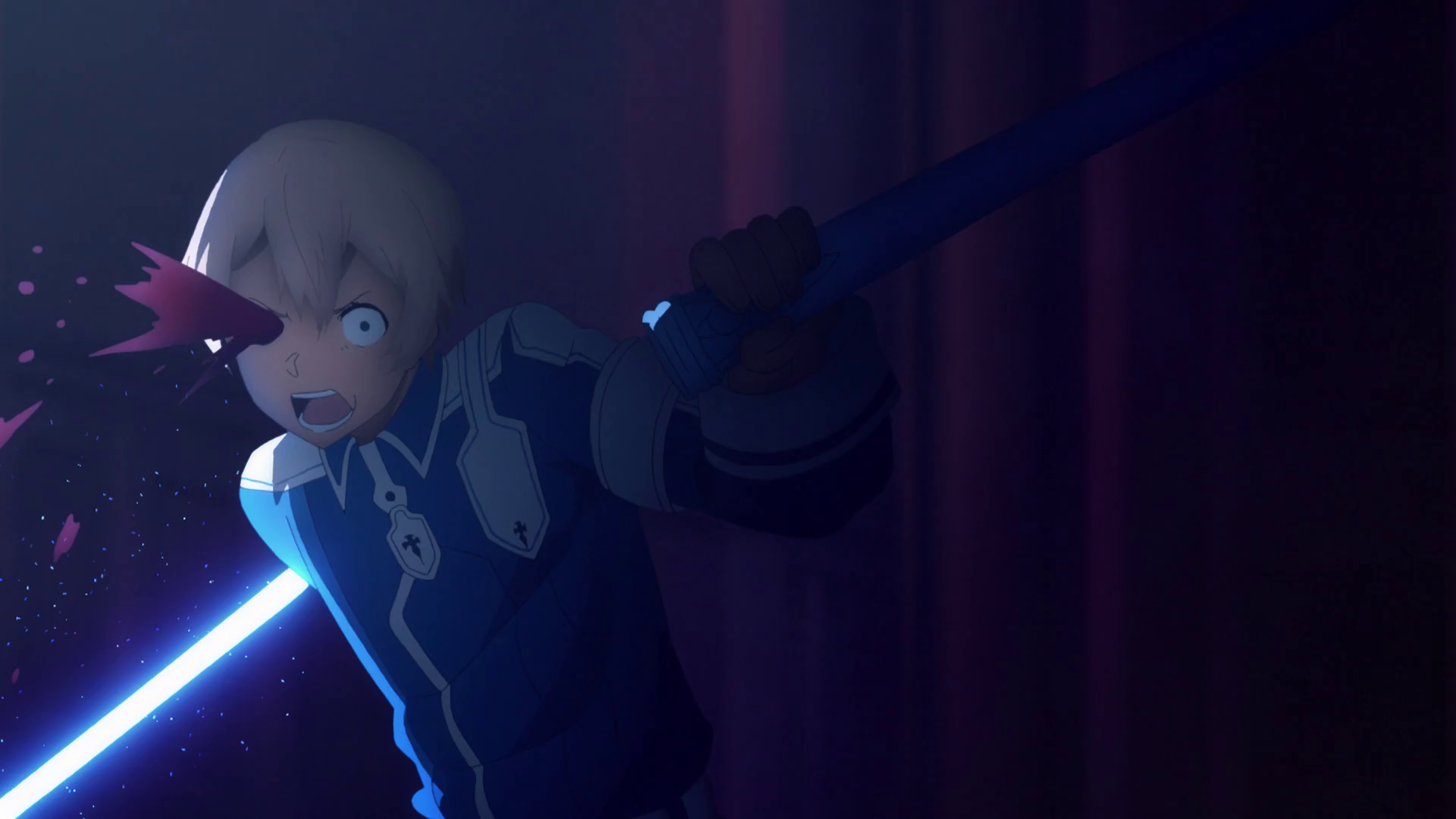
Anticipating a backlash, and with the scene being more graphic than the previous ones, Aniplex placed content warnings at the beginning of the episode, and even censored parts of the scene on all the streaming services they put the show on, in comparison to the Japanese airing, which was uncut.
The concerns do have justification. Using rape and sexual assault as a plot device tends to be a very sensitive subject, especially for those who has been victimized by such a traumatic event or know someone who has. Not to mention for a action show who’s main demographic is aimed at teens and young adults, 3 attempted rape scenes is a bit much, and whether you think the scenes are well written or not, that depends on who you ask. On the other hand, showing such scenes at least brings awareness to these situations, especially with the current #MeToo movement trying to make these issues come to light and helping to empower victims to fight back.
When it was time for Toonami to premiere the dub, Cartoon Network’s standards and practices department would act accordingly by censoring what they needed to to make it broadcast appropriate as they do with any other show with such nature, though just enough was kept to warrant a TV-MA rating. However, many detractors of Sword Art Online have argued that simply censoring the episode isn’t good enough and have gone as far as pleading to Toonami to cancel and blacklist SAO from airing on the block because of it. But if you asked Toonami head Jason DeMarco his stance on the situation; while he may not necessarily be a fan of such moves either, he doesn’t see it as a big deal as his critics do, especially considering that Toonami has also acquired titles that also have their fair share of controversial content and have received less vitriol as a result.
Yes, Toonami edited it down A LOT, and we did record the entire scene. From the beginning, we were told exactly what the scene entailed and nothing was dropped on us unexpectedly. A huge thank you to director @alexvondavid for creating a safe environment for the actors. #SAO
— Deneen Melody 🧡💛🧡 (@DeneenMelody) April 7, 2019
Interestingly enough, between the period when Toonami completed SAO 1 and premiered SAO 2, Toonami picked up several shows that pushed the boundaries of what Toonami and Adult Swim as a whole have shown in regards to violence and sexual content; including Black Lagoon, Hellsing Ultimate, and Kill la Kill. During a podcast with Anime News Network back in 2015 (mentioned in 59:05 though i made a condensed video below), Jason DeMarco said that he received zero complaints about the content of Fairy Dance outside of a small vocal minority of detractors.
And more recently, I asked Jason DeMarco this question on Twitter this week regarding the controversy:
Although SAO creator Reki Kawahara has since regretted creating the events of Episode 10 and vows not to make another, many of your critics have insisted that SAO should be disqualified from airing on Toonami because of his usage of sexual assault, even though there are quite a few of these same folks who seemed to have no problem when Hellsing, Kill la Kill, and even One Piece aired such events on Toonami. I remember a few years back that you said you received zero complaints regarding airing the Fairy Dance arc outside of trolls who decided to make it a big deal and have since went on to air more graphic shows like Black Lagoon, the previously mentioned Hellsing and Kill la Kill, and JoJo’s. What are your thoughts on the usage of “uncomfortable moments” for lack of a better term on Toonami and TV in general?
Jason: “Hmm… good question (and a complicated one). I think that anime has, for a long time, treated the subject of sexual assault in an overly casual way. This is partially due to the male dominated nature of the anime industry, and partially due to the differences in social mores between the U.S. and Japan. However, I think that today’s anime audiences are more connected and global, and as such, are more able to push back on what they feel are overly casual, graphic, or just poorly executed stories that involve sexual assault in anime. My personal feeling is that sexual assault should be something that is only used in a story if it’s absolutely central to our understanding of the character, and even then, it should be done in a non-salacious way if at all possible. That’s just my preference though.
There are many anime (and we’ve aired a few) that use things like sexual assault or the THREAT of sexual assault as thematic and story drivers. We will air a show that might have a scene or two we aren’t into if the rest of the series is one we are into. In the case of SAO I think viewers have every right to wonder about the inclusion of the scene in ep. 10 and ask why it needed to be in there and whether or not the show is worth watching. I think it is. You may disagree. We don’t feel bad editing the scene down heavily, since the creator himself admitted he went a bit too far with it. Anyway, as with anything we air on Toonami, it’s all looked at and approved by our Standards & Practices department and edited to fit TV ratings standards. Thankfully, that difficult work is *their* job, not mine! ;)”
I personally would agree to Jason’s statement on the matter, and would also agree to the matter in regards to where people are drawing the lines are splitting hairs. Do these attitudes continue when other series that have their fare share of controversial moments become well requested, like Goblin Slayer, Berserk, or Fairy Tail? Or if these same type of sentiments are brought up against fan favorites that have their own fair share of controversy (especially shows that are loved by SAO’s biggest critics), like Kill la Kill, Hellsing, JoJo’s, and One Piece? Why wasn’t the backlash against SAO as strong as say, when Ragyo molested her children, or when Nami and Robin were also damsels-in-distresses, or Hirohiko Araki’s knack of mutilating pets? If the answer basically is more or less “It’s only wrong when SAO does it” or “they justify it because those shows are better written, and I hate SAO’s” then I sure don’t want to be a part of those fandoms.
And to what end would Toonami need to censor for people to be satisfied? What would happen if advertisers raised concerns and Standards and Practices said “you can’t air shows with sexual assault anymore.” What if Jason and Gill actually did listen to their haters and blacklisted SAO from returning? If you ask me, I highly doubt the Black Lagoons, Hellsings, Kill la Kills, and JoJo’s Bizarre Adventures of the world as well would have been approved to air on Toonami on the grounds of content; or you would have seen them aired with heavier censorship then they already were, and it would be close to impossible to see other TV-MA rated shows get picked up by Toonami. Do keep in mind, we are in a time where people are getting a little more lax with violence and sexual content in media; where cable TV programs are allowed to say the s-bomb and that Game of Thrones and Law and Order: SVU are among the highest rated programs. There is a segment of the population that aren’t happy that Toonami did censor that scene as it is, and if Toonami did decide to skip episode 10 entirely (similarly to what they did with Outlaw Star episode 23 back in the day) and rejected many of the above mentioned shows on similar grounds, I’m pretty sure they would be a lot more anger then they already is.
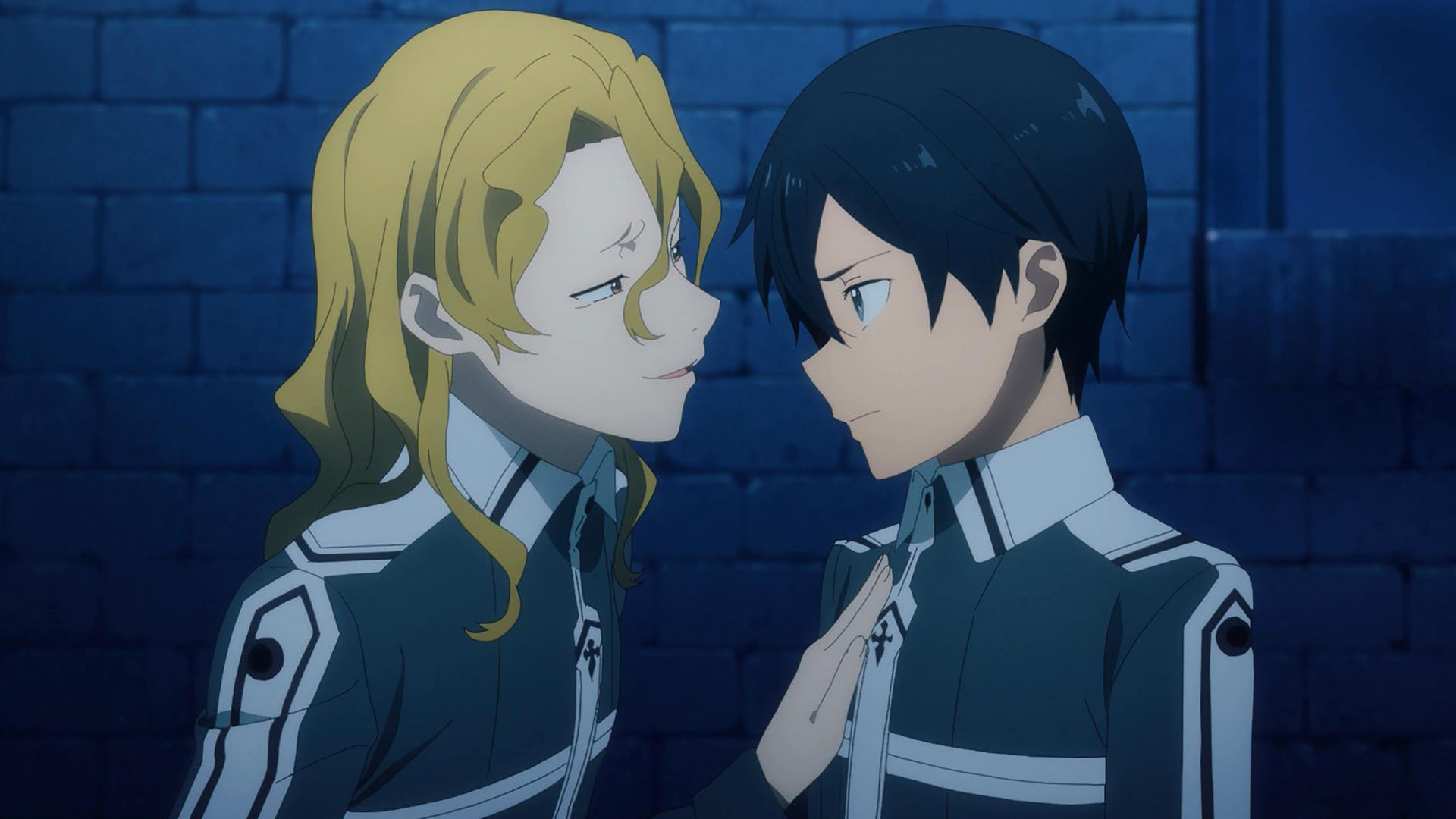
That being said, Reki Kawahara has apparently heard the complaints, and although the assault on Tiese and Ronye showed that the Taboo Index as the bylaws of the game is flawed and full of loopholes, Kawahara has since said that he has regretted created the scene (as well as the other previous ones) and you can rest assured this will be a one-off event and the last of such moves by him.
Kawahara also mentioned that his usage of sexual assault as a plot device was due to his early influences as a writer. Long time anime and manga fans would tell you that some Japanese media tend to be quite a bit more fanservice-heavy as Japanese viewers tend to be, for lack of a better term, more tolerant when it comes to both violence and sexual situations in media, at least compared to their western counterparts. So in that regard, it’s probably no surprise that up and coming writers like him would continue the tradition of bringing in such tropes. However, as Kawahara has continued to mature as a writer, in addition to receiving feedback from western fans, he says that he would rather not use rape to “express catharsis” nowadays.
Reki Kawahara would even apologize publicly to Tiese and Ronye’s Japanese’s voice actors for it.
ティーゼ役の石原さんとロニエ役の近藤さんも辛いシーンをきっちり演じきって下さいました。ありがとうございました! そしてすみません本当にすみません
— 川原礫 ; アクセル・ワールド27巻3月8日発売 (@kunori) December 8, 2018
Translation: “Ms. Ishihara, who plays Tiese, and Ms. Kondo, who plays Ronye, both performed a painful scene with aplomb. Thank you so much! And I’m sorry, I’m so sorry.”
いまさらですが、SAOになぜこういう展開が多いのかというと、私が中高生の頃に読んでいたライトノベル(当時はまだそう呼ばれていませんでしたが)や伝奇もの、冒険ものが少なからずそうだったからで、代表的タイトルを挙げれば『黄金拍車』の呪縛みたいなものに筆を引っ張られていたからなのです。
— 川原礫 ; アクセル・ワールド27巻3月8日発売 (@kunori) December 8, 2018
“This may be a bit late, but if you’re wondering why SAO has so many of those scenes, a considerable number of light novels (although they weren’t called light novels back then), epic sagas, and adventure stories I read back in middle school contained those plot elements. I would cite Ōgun Hakusha (Gold Spur) as a representative title. My writing was bound to that as if it were under a spell.”
最近になってようやくその呪縛も解けてきまして、現在はそれ以外の方法でカタルシスを演出していきたいと考えております。物語上どうしても必要なシーンならばやはり書かざるを得ませんが、その時はライトノベルではない本として書きたいと思っています。
— 川原礫 ; アクセル・ワールド27巻3月8日発売 (@kunori) December 8, 2018
“These days, the spell has finally worn off. Nowadays I would prefer to express catharsis through other means. If it was an absolutely necessary scene for the story, I would write it, but I would prefer to do that in a book that isn’t a light novel.”
(Translations by Kim Morrissy and Anime News Network)
This also ties in to another common criticism with the series, and that is Reki Kawahara’s habit of creating strong and independent characters, but handling them very poorly and often forgetting about them as the story progresses, being used as nothing more than props or window dressing at best.
During my SAO 3 preview article, I mentioned that the rest of the original cast including the members of Kirito’s ever growing harem will be largely forgotten throughout most of Project Alicization, a move that had even the novel’s artists protesting somewhat with the “More Deban” meme (Deban translating roughly to screen time).
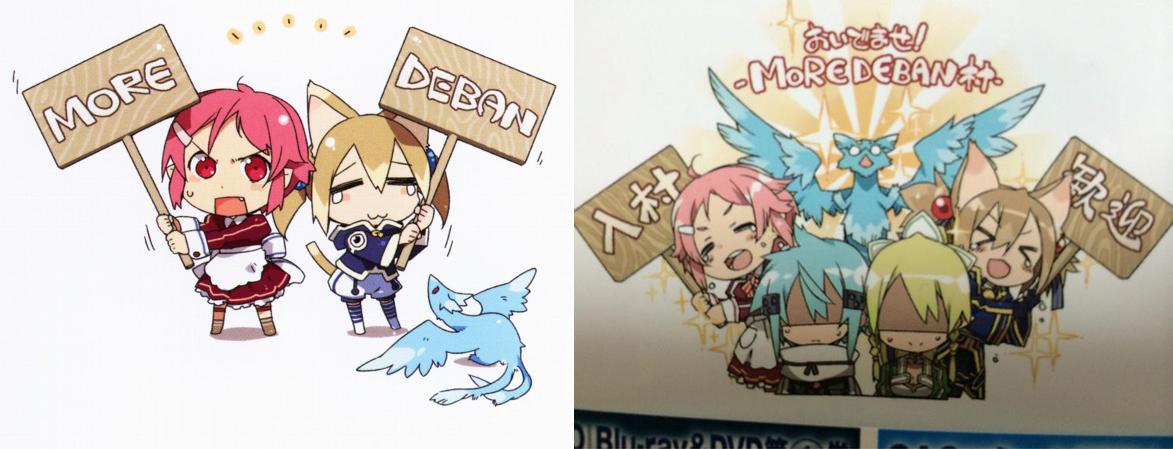
Although Eugeo, Alice, and some of the other new cast members have some very likable and relatable traits, and the 48-52 episode count helps things out in regards to development, some have found it difficult connecting with them too much knowing that going by previous trends by Kawahara, will also be shoved aside and largely forgotten once the next arc in the series comes around to getting finished and animated.
And there is Asuna. Although she has been given some time to shine, mostly in Mother’s Rosario and Ordinal Scale, since the Fairy Dance arc she has largely been relegated from her co-protagonist role, which has given her the reputation of being a “useless damsel-in-distress waifu” that has been put to the sidelines as Kirito continues to “cheat” on her. However, the harem is mostly one-sided as Asuna is the only girl Kirito loves back, and I don’t think Asuna gets as much credit that she is just as capable as Kirito is. During my interview with Bryce Papenbrook, the voice of Kirito, I asked him his thoughts regarding Asuna:
A major criticism about the show is that since the show begun the Fairy Dance arc, Asuna for the most part has been reduced to a “damsel in distress figure” and her role has been basically hit or miss ever since. Without going too much into spoiler territory, let’s just say that Reki Kawahara got a lot of criticism for shoving aside Asuna for quite a bit during Alicization although during the story line she’ll be actively trying to get Kirito out of this mess. Some blame Asuna falling in love with Kirito as the impetus for being turned from a strong feminist personality to being a weak and useless character and the symbol of all the show’s problems. What are your thoughts on this?
Bryce: “I totally disagree, I think Asuna is an extremely strong character and that the “damsel in distress” perspective, I don’t really understand because she was, yes, trapped in a cage, but in that entire arc, she continued to fight all the way up until the end. She never gave up. So I don’t see her as a weak character even through that arc. And the fact that she falls in love in someone doesn’t make her any weaker in my opinion. I think she maintains a strong role throughout the entire show. I’ve always seen Asuna as an extremely strong character. So I disagree, everyone’s gonna see the show a different way, but in my opinion, Asuna is a very strong character.”
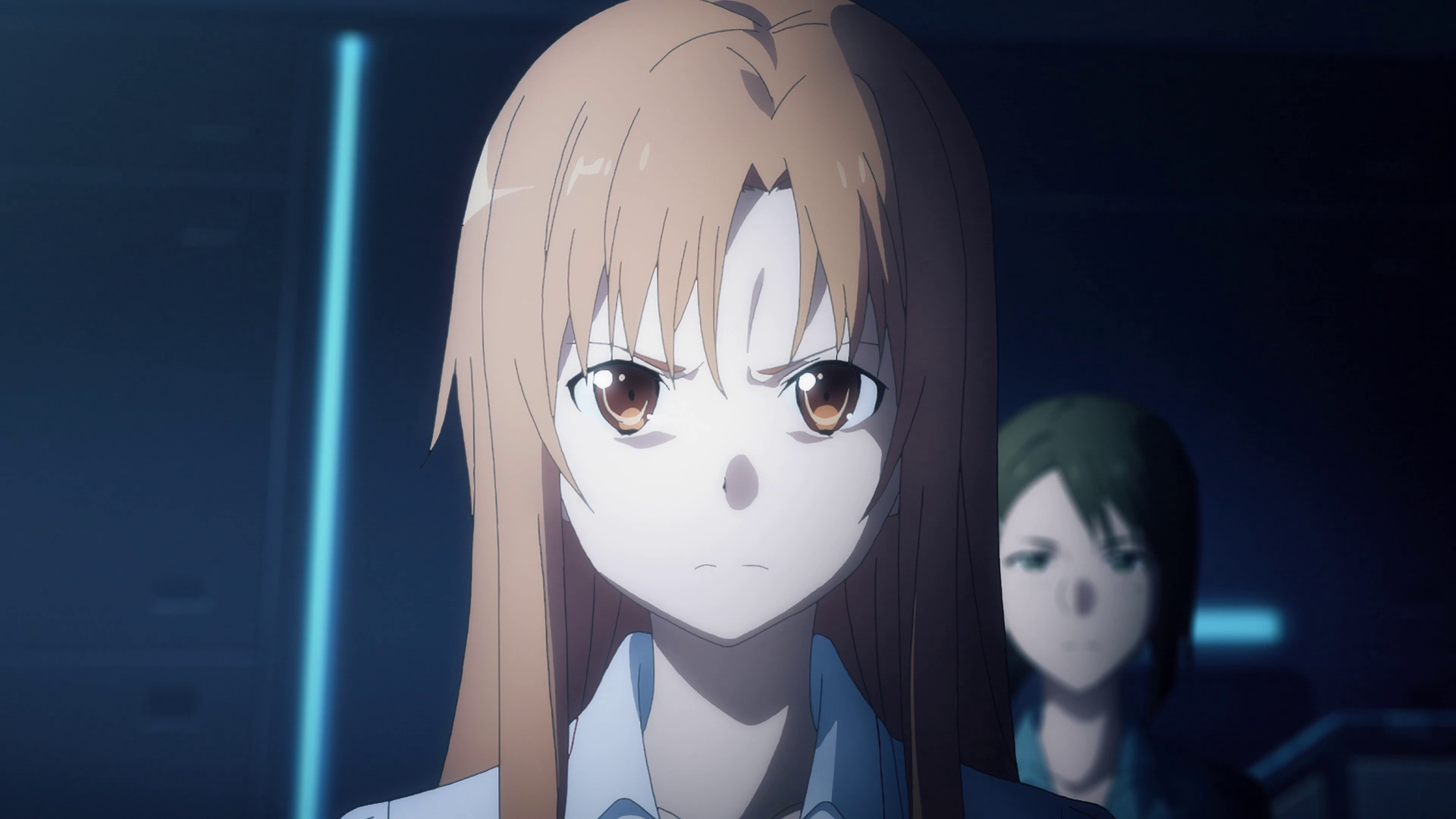
Kirito’s knack of collecting girls to his harem has led to criticisms of the SAO cast being filled with too many shallow characters that aren’t getting enough character development. In response, Reki Kawahara has heard these complaints about his poor treatment and usage of his female characters, and during an interview with Dengeki Online, he has said that Asuna and the other female characters are going to get more active in the story from now on.
According to Anime News Network contributor Kim “Frog-kun” Morrissy: “Reki Kawahara says that after going to overseas fan events, he has come to realize that he should write stories with “political correctness” in mind. Because of that, he’s been trying to give the female characters more agency and says that it is wrong to treat them as trophies.”
Reki Kawahara says that after going to overseas fan events, he has come to realise that he should write stories with "political correctness" in mind. Because of that, he's been trying to give the female characters more agency and says that it is wrong to treat them as trophies. pic.twitter.com/prquqrPDxD
— 🐸🐸 Frog-kun 🐸🐸 (@frog_kun) January 19, 2019
While Kirito and his relationship with Asuna will still be the main focus of SAO, Kawahara has admitted that this has become an issue and he does plan on including more story of the girls outside of just being members of Kirito’s harem in the future. No doubt it’s a light at the end of the tunnel for the “more deban” club and it also might be a good sign for fans of Eugeo and Alice as well post-Alicization…of course, that’s assuming they survive.
We have been seeing this with some of Reki Kawahara’s more recent works already. Ordinal Scale, which was being written as Kawahara put the finishing touches on the Alicization novels, focused on Kirito and Asuna’s relationship rather than just adding another girl to the dynamic. And you’ll be seeing much more of this with the next story arcs in the works, with Unital Ring and the Aincrad reboot in the Progressive series. There’s also a side story in the works in Girls Ops where the story focuses on the Harem/More Deban club while Kirito and Asuna are away doing their own thing.
And in regards to Project Alicization, although Kawahara has gotten criticism for sidelining Asuna from much of the action as she is forced to watch Kirito recover from Johnny Black’s assault helplessly, her role is still major to the storyline and Kawahara will eventually make up for this by unfolding and unleashing her moves in time and giving her significant action in the second half of the story arc. Due to spoiler reasons, you’ll just have to wait and see how it goes.
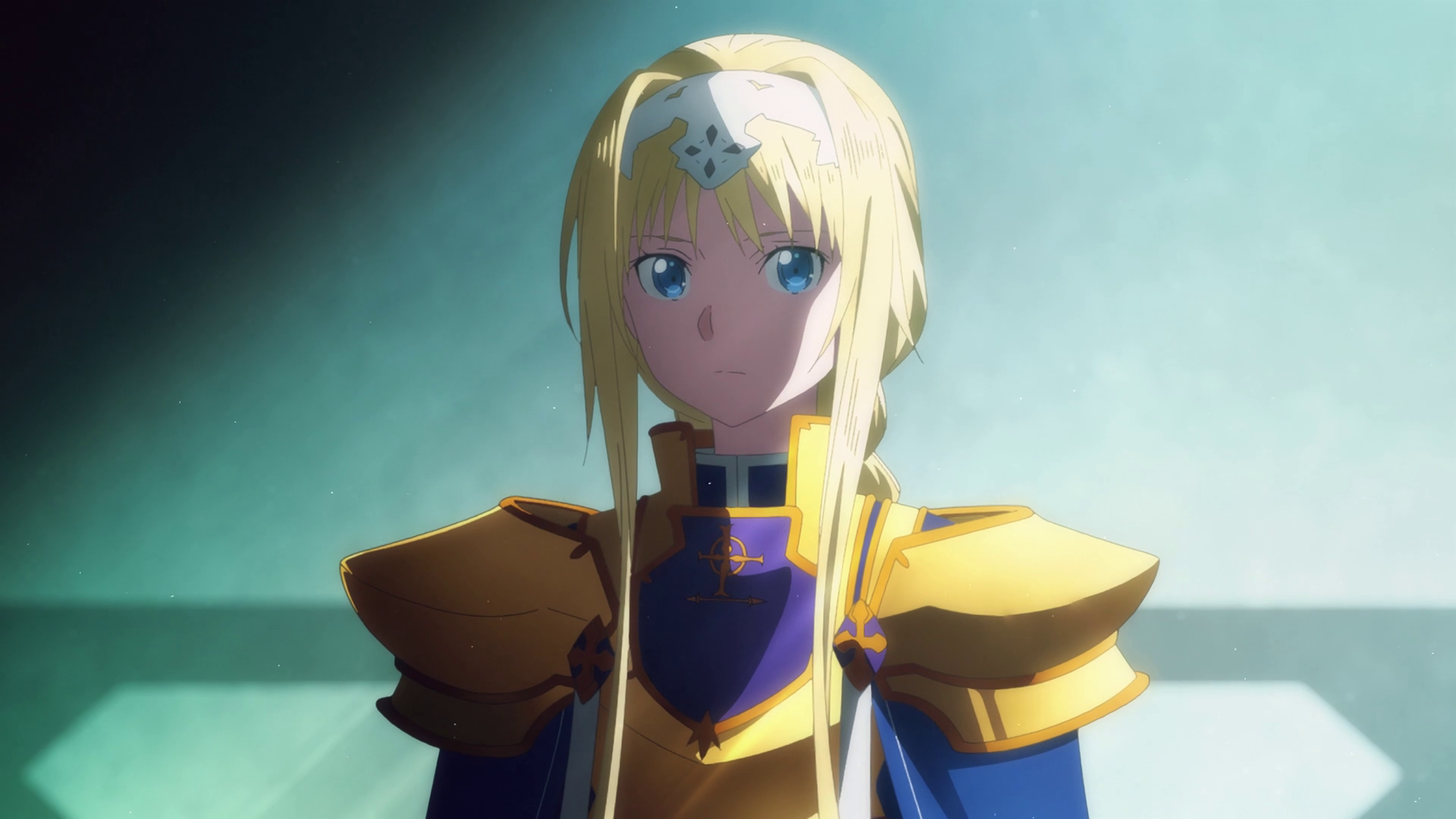
In the end, I think Toonami made the right move for the situation. Censor what they need to censor, listening to legitimate concerns, and ignoring those who wouldn’t be making much of a ruckus if it was another show. Regardless of what you think of the controversies or Reki Kawahara as a person or a writer, SAO continues to be a successful franchise despite it, and as long as fans continue to watch and Aniplex and Toonami are still interested in airing the show, i don’t see the show going away anytime soon (hiatuses aside).
But Reki Kawahara deciding to address the show’s glaring issues is also a step in the right direction, and really all that anyone can ask for at this point. As the Sword Art Online franchise continues to prosper and see more seasons for years to come, hopefully the future of this franchise will see a story that will leave fans feeling much better, and hopefully Toonami will continue to show it to its end. Now if only Kirito can just get the harem to back off and marry Asuna already…
Sources: Dengeki Bunko, Anime News Network, Jason DeMarco, Bryce Papenbrook
If you are a victim of sexual assault and need assistance or know someone who does, we recommend calling the National Sexual Assault Hotline at 1 (800) 656-4673 or the National Domestic Violence Hotline at 1 (800) 799-7233.

